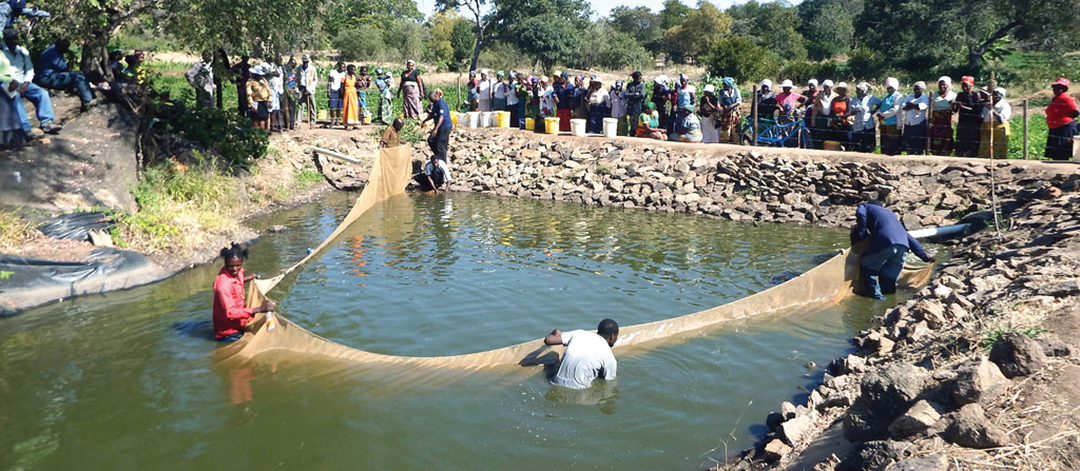story and photo by JEFFREY MOYO/IPS
Hillary Thompson throws leftover rice, mixed with some beer dregs from his sorghum brew, into a swimming pool he has converted into a fish pond.
“For over a decade, fish farming has become a hobby that has earned me a fortune,” Thompson, of Harare, Zimbabwe, said in August 2015. In fact, he has been so successful that he acquired a number of properties that he rents out.
African fish farming is growing as the United Nations urges nations to ensure sustainable consumption and production patterns as part of its proposed new Sustainable Development Goals (SDGs), which will replace the Millennium Development Goals that expired in 2015. The SDGs are 17 goals, targets and indicators that U.N. member states are expected to use as development benchmarks in framing their agendas and political policies over the next 15 years.
In Zimbabwe, an estimated 22,000 people are involved in fish farming, according to the Ministry of Agriculture. In Malawi, 30,000 people are active in fish farming. Fisheries provide the food that supplies about 70 percent of the protein intake of the country’s estimated 14 million people.
“I was destitute when I came to Blantyre eight years ago, but now thanks to fish farming, I have become a proud owner of home rights in the city,” Lewis Banda of Blantyre, Malawi, said.
Across Africa, fishing provides direct incomes for about 10 million people — half of whom are women — and contributes to the food supply of 200 million more. In Uganda, for example, lake fishing yields catches worth more than $200 million a year. Fish farming employs about 135,000 fishermen and 700,000 more in processing and trading.
Citing a growing shortage of traditionally harvested fish, the South African government invested $7.8 million in 2014 in aquaculture projects in the country’s four coastal provinces. That year, 71,000 South Africans were involved in fish farming, according to the Department of Environmental Affairs.
Studies show that 9.2 million square kilometers — 31 percent of the land area — of Sub-Saharan Africa is suitable for smallholder fish farming. Twenty-four countries in the region are battling food crises, twice as many as in 1990. Fish farming could be the only means for many Africans to beat poverty and hunger. “Fish breeding has emancipated many of us from poverty,” Banda said.


Comments are closed.